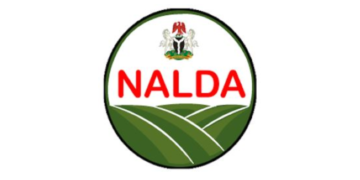The Nigerian Economic Summit Group (NESG) has expressed fear of economic recession and social unrest as a possible fallout of Nigeria’s current weak economic growth manifested in soaring inflation and unemployment figures.
Chief economist and director of research and development at NESG, Dr Olusegun Omisakin made the concern when he remarked that the return of inflationary pressure and declining purchasing power affects the Nigerian economy and that “weak growth combined with inflation and unemployment may lead to recession and social unrest.”
Omisakin made the remarks at a pre-28th Nigerian Economic Summit (#NES28) event organised by the NESG and the Federal Ministry of Finance, Budget and National Planning with the theme “Key Drivers for Economic Prosperity: A Critical Look at Entrepreneurship Policies.”
Omisakin stated that access to credit and an unconducive business environment impact production capacity and the prices of products and contribute to inflationary trends; noting that the relationship between oil prices and trade surplus shows that 79 per cent of Nigeria’s total exports are crude oil, but the country has failed to use it to her advantage, resulting in a decline in Foreign Direct Investments (FDI).
Omisakin said there is a need for Nigeria’s oil sector to perform well, considering that the growing non-oil sector doesn’t contribute to job creation.
In her welcome remarks, NESG board director, Mrs Wonu Adetayo said “as Nigeria looks to welcome a new government, economic growth should be a frontline issue and an immediate area of focus, considering that entrepreneurship is a critical driver of the economy.
“To implement policies and interventions, entrepreneurship policies must be addressed, including the attendant gaps, and this event will review key policies around thematic areas to promote access to finance.”
Adetayo said the Nigerian entrepreneurship system continues to grapple with pandemic-induced recession and the current macroeconomic problems of the Nigerian economy. She also said that accessing finance and Nigeria’s poor business environment exacerbate the issues of the economy. “Even though the Nigerian economy continues to show resilience, a lot of MSMEs continue to struggle with the impact of the challenges,” she said.
Nigeria’s 2021 MSME survey showed a 4.5 per cent decline in MSME growth, indicating a drop from 41.5 million recorded in 2018 to 39.6 million in 2021, primarily due to the impact of the pandemic; which means that 1.9 million MSMEs have gone out of existence.
Minister of state, Federal Ministry of Trade and Investment, Mariam Katagum, who was represented by Director in charge of Enterprise and promotion, Small and Medium Enterprises Development Agency of Nigeria (SMEDAN) Mr Sunday Ewans, stated that major policies address key areas that affect small businesses.
She noted that Micro businesses form the majority of the 39.6 million MSMEs in Nigeria, accounting for over 95 percent of all MSMEs. Furthermore, she revealed that in a 2020 impact assessment survey of MSMEs, small businesses said they lack adequate access to affordable finance, skills and market access.
On his part, the managing director/CEO of Development Bank of Nigeria (DBN), Mr Tony Okpanachi, said that DBN is providing technical assistance for financial institutions, partial credit guarantees and capacity development for MSMEs. He noted the existence of a funding gap in the sector which affects the availability of funding for MSMEs.





